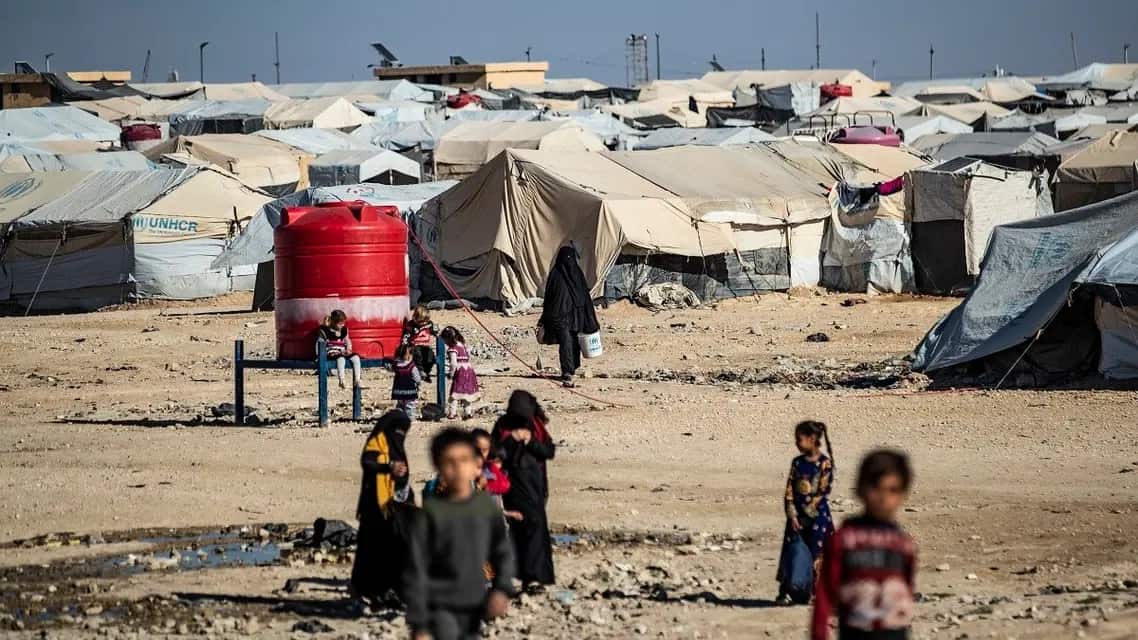Children held in Syrian camps for relatives of suspected extremist fighters may remain stuck there for another 30 years, unless the pace of repatriations accelerates, Save the Children said Wednesday.
“It will take 30 years before foreign children stuck in unsafe camps in North East Syria can return home if repatriations continue at the current rate,” it said in a statement.
The charity’s call to quicken repatriations coincides with the third anniversary of the final demise of ISIS’ self-proclaimed caliphate.
The massive US-backed Kurdish military operation landed tens of thousands of the extremist proto-state’s residents in detention camps, including many foreigners.
Save The Children said that 18,000 Iraqi children and 7,300 minors from 60 other countries are stuck in the Kurdish-run al-Hol and Roj camps, in northeastern Syria.
“The longer children are left to fester in Al-Hol and Roj, the more dangers they face,” said the charity’s Syria response director, Sonia Khush.
United Nations data shows that around 56,000 people live in al-Hol, an overcrowded camp plagued by murders and escape attempts.
In 2021, 74 children died there, including eight who were murdered, according to Save the Children.
Kurdish authorities have repeatedly called on foreign states to repatriate their citizens but Western countries have mostly returned them in dribs and drabs, fearing a domestic political backlash.
“These children have done nothing wrong,” Khush said. “When will leaders take responsibility and bring them home?”








